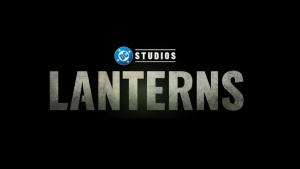Paizo has announced plans to release a new system-neutral Open RPG License, which will allow independent game publishers to authorize use of their own game systems for third-party publishers. Today, Paizo announced plans for the Open RPG Creative License (ORC for short), a new system-agnostic license that would allow any publisher to authorize use of their game system for use by third-party publishers. “We believe, as we always have, that open gaming makes games better, improves profitability for all involved, and enriches the community of gamers who participate in this amazing hobby,” Paizo wrote in the blogpost announcing the license. “And so we invite gamers from around the world to join us as we begin the next great chapter of open gaming with the release of a new open, perpetual, and irrevocable Open RPG Creative License (ORC).”
Videos by ComicBook.com
While Paizo will pay for the development of the ORC, it will not own the new license. Instead, the ORC will ultimately be held by a nonprofit with a history of open source values, similarly to how Linux is held by the non-profit Linux foundation.
Paizo noted that many other tabletop publishers will also be involved with the license. “In addition to Paizo, Kobold Press, Chaosium, Green Ronin, Legendary Games, Rogue Genius Games, and a growing list of publishers have already agreed to participate in the Open RPG Creative License, and in the coming days we hope and expect to add substantially to this group,” Paizo stated.
While announcing the ORC, Paizo also addressed the use of Wizards of the Coast’s Open Gaming License (OGL) in its Pathfinder and Starfinder game. Pathfinder was originally built around the Systems Reference Document detailing the use of Dungeons & Dragons 3.5 rules under the OGL. Although Paizo released Pathfinder 2E back in 2019 which no longer used the framework of D&D 3.5 rules for its game system, it continued to publish its rulebooks under the OGL.
In the blogpost, Paizo noted that they used the OGL in Pathfinder 2E not to utilize Dungeons & Dragons’ System Reference Document, but instead to allow for other publishers to utilize Pathfinder’s rules when making their own material. “By the time we went to work on Pathfinder Second Edition, Wizards of the Coast’s Open Game Content was significantly less important to us, and so our designers and developers wrote the new edition without using Wizards’ copyrighted expressions of any game mechanics,” Paizo wrote. “While we still published it under the OGL, the reason was no longer to allow Paizo to use Wizards’ expressions, but to allow other companies to use our expressions.”
Obviously, Paizo will continue to publish Pathfinder and its sister game Starfinder, even as it separates itself from the OGL. Products currently at the printer will have the OGL 1.0(a) printed on the back pages, and future product will made without any license until the ORC is completed.
The announcement of the ORC and Paizo’s plans to move away from the OGL is the latest development in the ongoing turmoil surrounding the current OGL, which is owned by Wizards of the Coast. Last month, Wizards of the Coast announced plans to “update” the OGL with a royalties system that would impact Paizo and several publishers who produce material compatible with Dungeons & Dragons 5E. A leaked copy confirmed a 25% royalty fee would be placed OGL-published revenue over $750,000 along with several other restrictions surrounding rights. The leak also confirmed Wizards of the Coast’s stated intent to “de-authorize” the previous OGL, which would force publishers into the more restrictive license. While Paizo and various tabletop designers who worked at Wizards of the Coast at the time of the OGL’s drafting dispute Wizards’ right to “de-authorize” previous versions of the OGL, many publishers have announced their plans to move away from Dungeons & Dragons 5E-compatible material, with several planning to release their own bespoke game system instead.








